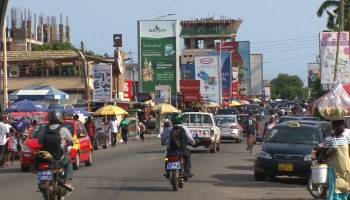Addressing the Alarming Illiteracy Level in Ghana: A Call for Change
Introduction
Illiteracy remains a significant challenge in many parts of the world, impeding social development, economic growth, and limiting individuals' potential. Like several other developing countries, Ghana is grappling with a persistently high illiteracy rate despite commendable progress in various sectors. This article aims to shed light on the current illiteracy level in Ghana, its causes, consequences, and the initiatives undertaken by the government and non-governmental organizations (NGOs) to combat this issue.
Illiteracy in Ghana: An Alarming Reality
According to the 2017 United Nations Development Program (UNDP) report, Ghana recorded an adult literacy rate of around 76.6%. Although this figure may seem relatively high, it conceals the stark regional disparities. Northern Ghana, consisting of the Upper East, Upper West, and Northern Regions, has a significantly higher illiteracy rate compared to the rest of the country. In some of these regions, illiteracy rates exceed 40%, perpetuating a cycle of poverty and limited access to basic services.
Causes of Illiteracy in Ghana
Several factors contribute to the high illiteracy levels in Ghana:
1. Limited access to quality education: Lack of infrastructure, particularly in rural areas, where schools are often poorly resourced and understaffed, has resulted in limited access to education.
2. Gender inequality: Gender disparities persist in Ghana, with girls facing greater challenges in obtaining an education due to cultural barriers, early marriages, and gender-based violence.
3. Poverty: Given the direct link between poverty and illiteracy, families struggling to meet basic needs may prioritize survival over education, forcing children to work instead of attending school.
4. Language barriers: Ghana, a multilingual country, faces difficulties in aligning education programs with different languages, hindering effective learning for children who speak languages other than English.
Consequences of Illiteracy
High illiteracy rates have severe consequences for both individuals and society as a whole. Illiterate adults face limited economic opportunities, contributing to ongoing poverty cycles. Moreover, illiteracy restricts access to information, making it difficult for individuals to fully participate in social, political, and civic activities. Additionally, health-related information is often inaccessible to illiterate individuals, leading to higher rates of preventable diseases and decreased overall well-being.
Government and NGO Initiatives to Address Illiteracy
The Ghanaian government, along with various NGOs, has initiated several programs to tackle illiteracy at both national and grassroots levels. Some key initiatives include:
1. Free Compulsory Universal Basic Education (FCUBE): Launched in 1995, FCUBE aims to guarantee free and compulsory education for all children up to the age of 15. Efforts have been made to improve school infrastructure, train more teachers, and provide teaching materials to support quality education.
2. National Literacy Acceleration Program (NALAP): NALAP strives to improve literacy levels in Ghana by offering literacy classes to youth and adults who missed out on basic education. It emphasizes functional literacy, numeracy, and vocational skills to enhance livelihood opportunities.
3. Partnership with NGOs: Collaborations with NGOs such as Literacy Bridge Ghana, World Reader, and the Ghana National Education Campaign Coalition have played a crucial role in advocating for quality education, facilitating community-based literacy projects, and supporting inclusive education for marginalized groups.
Conclusion
Ghana's battle against illiteracy requires a multi-faceted approach involving government policies, increased funding for education, community participation, and targeted initiatives. Addressing regional disparities, advocating for gender equality, and enhancing educational infrastructure in marginalized areas are critical steps towards improving literacy rates in Ghana. By empowering individuals through education, Ghana can drive economic growth and ensure a brighter future for its citizens, fostering a thriving society based on knowledge and opportunity.




No comments yet
Be the first to share your thoughts!